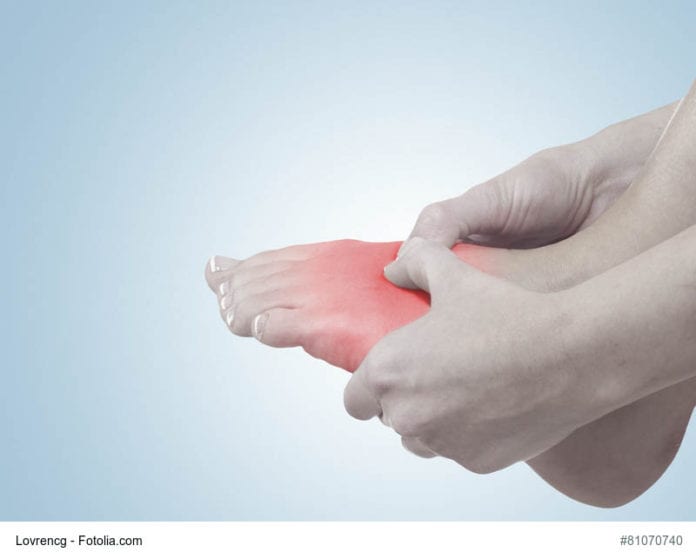During a 12-hour shift, a nurse will walk an average of 7,000 steps. That's almost 3 1/2 miles! Your feet are pretty small, considering they have to support the entire height and weight of your body. But they can cause big problems. So pay some attention to your feet.
Foot Health Tips
- Use appropriate, well-fitting footwear.
- Wear clean socks.
- Keep your feet clean.
- Exercise your feet.
- If you’re overweight, try to lose weight.
- Avoid standing long hours.
- When exercising or playing in sports, build up gradually.
- If you have diabetes, examine your feet regularly for problems like cuts, bruises, blisters, sores or swelling.
“Feet don’t get any respect,” says Dr. Marian T. Hannan, who studies foot disorders at the Institute for Aging Research at Hebrew SeniorLife. “They’re sort of the Rodney Dangerfield of the human body.”
Each step you take involves a remarkably intricate network of bones, muscles, tendons and ligaments. That complexity—combined with all the weight they carry—accounts for why feet can be so prone to problems, including bone fractures, arthritis and plantar fasciitis, a swelling of the thick band of tissue that runs along the bottom of the foot.
If left untreated, foot problems may worsen. Eventually, the pain could interfere with your ability to do even the most basic things like walking up stairs or down the street. If pain alters the way you walk, it can lead to pain in your knees, hips and back as well. These problems can multiply, limiting your activity and affecting your quality of life.
Several things can contribute to foot pain or numbness. Sports and physical activity can cause your feet to hurt or become numb. Going too far, too fast or not warming up properly before exercise can set you up for painful or numbing injuries.
Excess weight puts extra stress on your feet. Poorly fitting shoes and other footwear are common causes of foot problems as well.
Health problems can also affect the feet. Lack of feeling in your feet could be a sign of a serious illness, such as diabetes or a nerve disorder. See your health care provider if you have unusual numbness in your feet or foot pain that is severe, comes on suddenly, or doesn’t improve with simple measures such as rest or over-the-counter pain medications.
“The good news is that most foot disorders are either treatable or modifiable,” Hannan says. “The first thing that you can do is notice and keep track of it to see if there’s a pattern to it.” Once you figure out when you feel pain or numbness, she explains, talk to an expert who can help.
How you walk and move affects your feet. Part of that is inherited. “Not only do our feet look like our parents’ but we also walk like our parents,” Hannan says. But you can modify your gait—either with training or by changing shoes or using shoe inserts or pads.
You can help keep your feet healthy by wearing comfortable, well-fitting shoes. Wash your feet regularly (especially between your toes), wear clean socks and try to rotate your shoes to give them time to air out.
“The more you exercise your feet, the better the blood flow is to the feet, and that’s important for general foot health,” Hannan says.
Walking is a great way to exercise your feet. You can also try specific foot exercises. Sit down and rotate your ankles in one direction, then the other. In bare feet, sit in a chair and curl your toes, then spread them out. This helps stretch and strengthen your feet to help you balance.
Seeing what someone’s foot looks like is incredibly informative, Hannan says. “I think we’re going to be seeing a lot more health care providers paying attention to the feet,” she predicts.


